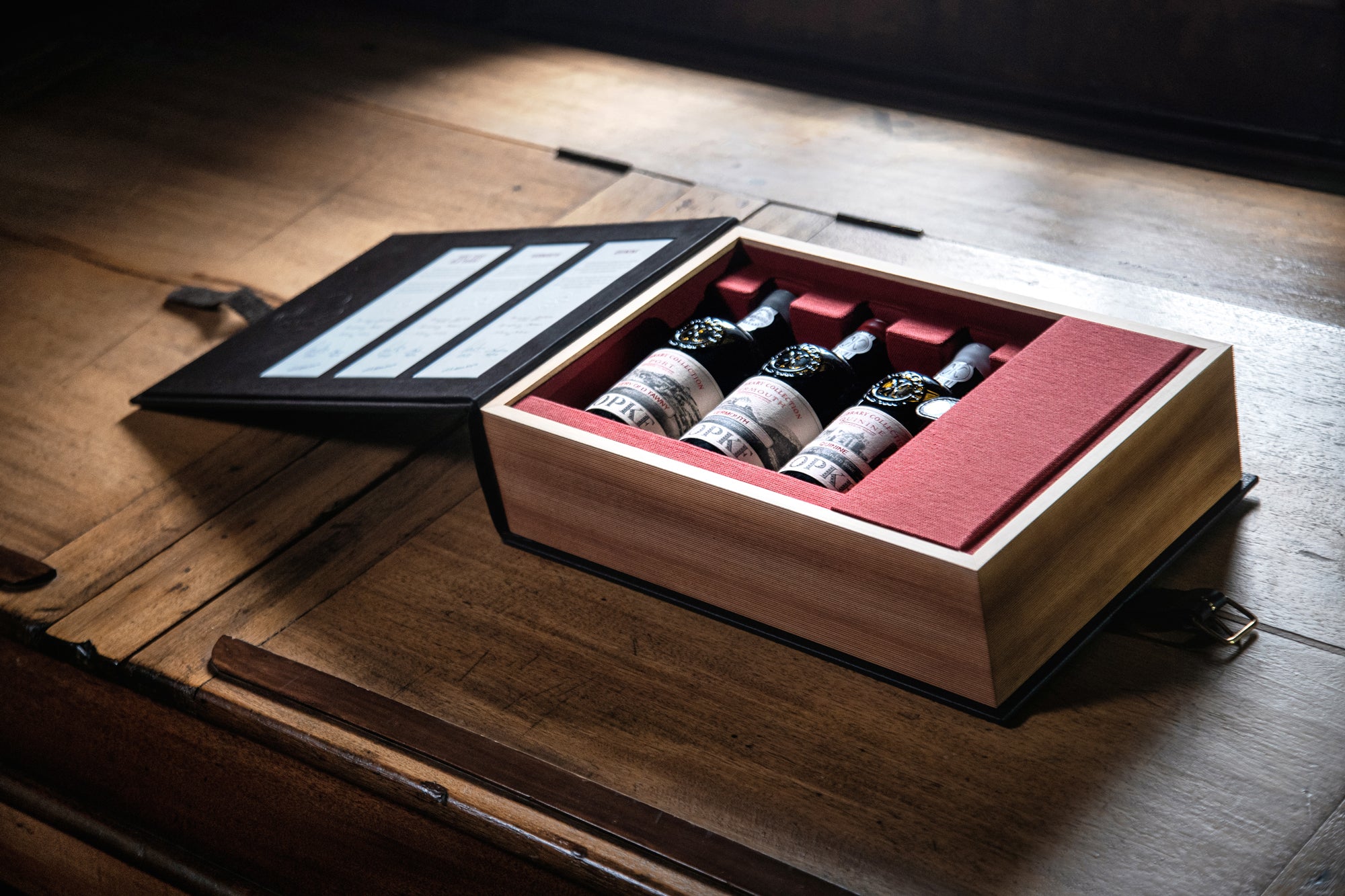THE LIBRARY COLLECTION KOPKE
Pagamentos seguros

VERY VERY OLD PORT
- Pairings
- Technical Details
- Medium-intensity cheeses;
- Foie gras;
- Cream Brûlée;
- Desserts made from dried fruits
- Alcohol Content 20%
- pH 3,45
- Total Acidity 8,43 g/dm3
- Reducing Sugars 167 g/dm3

VERMUTE
Kopke's extensive library of old wines created from Port includes this Vermouth, which was made at the beginning of the 20th century using a secret recipe.
- Pairings
- Technical Details
- Plate of sausages;
- Cheeses;
- Nuts;
- Alcohol Content 19%
- pH 3,27
- Total Acidity 13,9 g/dm3
- Reducing Sugars 215g/dm3

QUINADO
Kopke's extensive library of old wines includes, amongst other remarkably rare wines produced from Port, this Quinine, which was produced at the beginning of the 20th century.
This Quinine shows an amber colour with yellow hues, medicinal aromas, and aromas of spice, with notes of vanilla against a background of an exotic bouquet. Sweet on the palate, with notes of spice and dried fruits enveloped by the slight bitterness of quinine.
- Pairings
- Technical Details
- Hard cheeses;
- Olives;
- Alcohol Content 17.5%
- pH 3,22
- Total Acidity 12,5 g/dm3
- Reducing Sugars 200 g/dm3





















